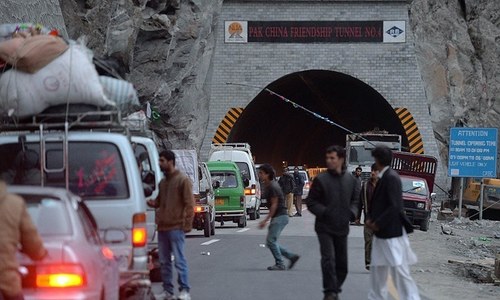ISLAMABAD: The government has called the National Economic Council to meet on Wednesday (June 10) to set next year’s growth target at 2.1 per cent with a total development investment of over Rs1.45 trillion.
Led by the prime minister, the NEC comprises the four chief ministers, four cabinet members including Hafeez Shaikh, Asad Umar, Abdul Razak Dawood and Ishrat Hussain. The council also has four provincial representatives including Jam Jamali from Balochistan, Taimur Saleem Jhagra from KP, Makhdum Hashim Bakht from Punjab and Nisar Khoro from Sindh.
The governor of KP, Prime Minister of Azad Kashmir, Chief Minister of Gilgit-Baltistan, deputy chairman Planning Commission and secretaries of finance, economic affairs and planning also attend the NEC meeting on special invitation while top bureaucrats from all federal, provincial and regional governments and agencies participate only for their respective projects.
Informed sources said the provincial annual development plans (ADPs) for next year have been estimated at Rs783bn while about Rs650bn would be shown as federal Public Sector Development Programme (PSDP).
Of this, about Rs50bn is expected to be made available from Public-Private Partnership. This would also include about Rs100bn for some signature political projects of the PTI government but fall in the domain of the provinces. A major new plan to become part of the PSDP next year also includes the $7.2bn Karachi to Peshawar Railway Line (ML-1). Meanwhile. about Rs70bn would be set aside for Covid-19 related projects.
For the first time, allocations of another Rs95bn or so for development budgets of Azad Kashmir, GB, merged tribal districts of Khyber Pakhtunkhwa would not be shown as part of the PSDP under the Ministry of Planning and would be separately remain at the disposal of Ministry of Finance.
The Planning Commission has warned the NEC that the economic landscape in the coming year predominantly depends upon the control of the pandemic. It had projected a 2.3pc GDP growth target for FY21 but has revised to 2.1pc on the insistence of the international lending agencies, the State Bank of Pakistan and the finance ministry.
As such, the growth target for agriculture has also been reduced to 2.8pc, from 2.9pc due to impact of locust invasions while similar downward revision has also been made for industry that would remain in the negative owing to subdued demand in the global markets.
The Planning Commission expects the overall GDP to pick up in 2020-21 while rehabilitation and recovery of industrial and services sectors will support the growth prospects. Monetary easing and debt relief will also improve fiscal position while inflation is projected to stay at around 6.5pc.
Published in Dawn, June 9th, 2020














































